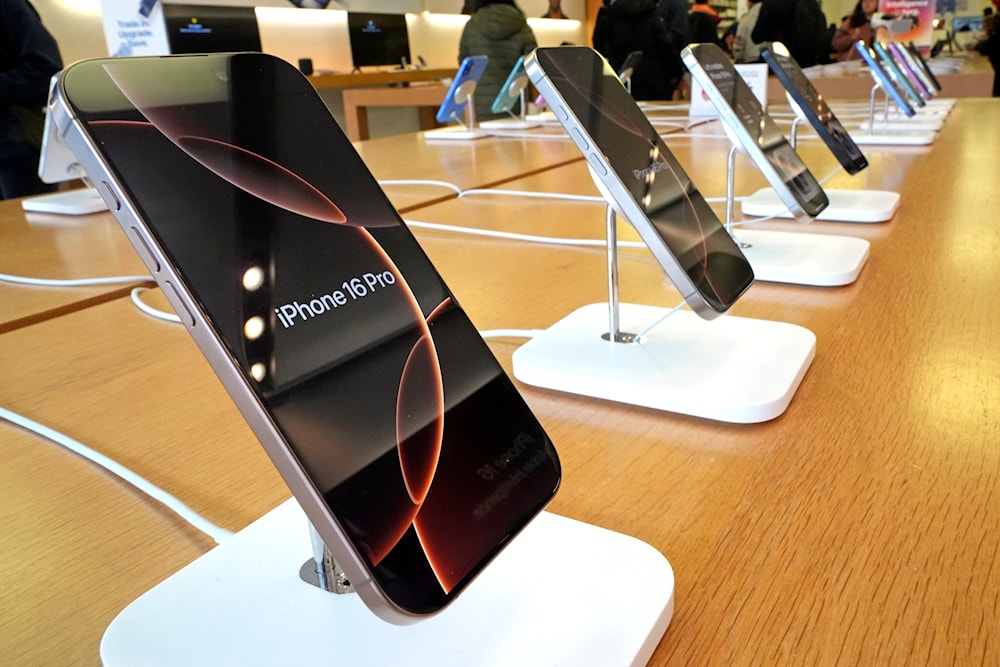Apple to shift US iPhone production from China to India: FT
Apple plans to move all iPhone production for the US market to India by 2026, accelerating its supply chain shift away from China due to Trump's trade tariffs.
-

This is a display of iPhone 16s in an Apple Store in Pittsburgh on January 12, 2025. (AP)
Apple plans to shift the production of all iPhones sold in the United States to India by next year, as sources indicate that President Donald Trump’s trade policies are driving the company to reduce its reliance on China.
According to The Financial Times, Apple aims to double its iPhone production in India, marking a significant pivot after nearly two decades of investing heavily in Chinese manufacturing. This move comes as Beijing faces aggressive tariffs imposed by the Trump administration, prompting Apple to diversify its supply chain.
The Financial Times highlighted that Apple is advancing its efforts to diversify production faster than investors had anticipated.
The tech giant now plans to source all 60 million-plus iPhones sold annually in the US from India by the end of 2026. This development underscores the impact of trade tensions, particularly after Trump's tariff policies reportedly erased $700 billion from Apple’s market value.
In response, Apple quickly began exporting India-made iPhones to the US, aiming to bypass higher tariffs on Chinese imports. While Apple has expanded production in India through partners like Tata Electronics and Foxconn, most iPhones are still assembled in China.
Currently, Apple relies on Chinese contract manufacturers, including Foxconn, for most iPhone production. However, these operations have faced steep tariffs under the Trump administration, and despite some indications of potential trade talks between Washington and Beijing, the tariff environment remains uncertain.
Although President Trump initially proposed reciprocal tariffs exceeding 100% on Chinese imports, smartphones received a temporary exemption. Nevertheless, they remain subject to a separate 20% tariff on all goods imported from China.
India, meanwhile, faced a proposed reciprocal tariff of 26%. This measure has been suspended as New Delhi and Washington negotiate a bilateral trade deal. During a recent visit to India, US Vice President JD Vance noted that the two nations are making "very good progress" in their discussions.
With the US accounting for around 28% of Apple’s 232.1 million global iPhone shipments in 2024, the company must significantly expand its Indian production capacity to meet this demand.
To support this effort, Foxconn and Tata have begun importing partially assembled component kits from China for final assembly in India. This step reflects Apple's strategy to manage tariff risks while maintaining production efficiency.
“We believe this is going to be an important move for Apple to be able to maintain its growth and momentum,” the Chief Executive at Futurum Group told FT. “We are seeing in real time how a company with these resources is moving at relative light speed to address the tariff risk.”

 3 Min Read
3 Min Read








